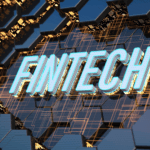Sam Altman, CEO of OpenAI, is reportedly in discussions to receive a 7% equity stake in the company, potentially valued at $11 billion. This development comes amid investor pressure to ensure leadership commitment to maximizing returns. Previously, Altman has been notable for claiming no equity in OpenAI, despite its significant valuation. The equity consideration appears as part of OpenAI’s broader efforts to secure substantial funding to meet its ambitious objectives. These discussions reflect the evolving dynamics within the company as it navigates its financial and strategic trajectory.
OpenAI’s journey from a non-profit research lab to its current for-profit model has been marked by significant milestones. Initially dependent on donations, the organization introduced a for-profit arm in 2019 with a unique capped-profit model. This structure allows investors to potentially earn up to 100 times their initial investments. These changes were deemed necessary to support the technological advancements and computational resources essential for AI development. The current discussions about granting equity to Altman signify another pivotal moment in OpenAI’s history, aligning with its pursuit of further investments.
What Are the Implications of This Potential Equity Grant?
Granting equity to Altman would likely reassure investors about the leadership’s commitment to OpenAI’s future. This move could enhance the company’s ability to raise $6.5 billion in new funding, a strategic goal tied to restructuring its corporate framework. Discussions around restructuring have been a notable theme, with Altman previously hinting at this potential transition during a technology conference in Italy. The shift, if realized, would mark a significant evolution in the company’s approach to achieving its long-term aspirations.
How Have Recent Developments Influenced OpenAI’s Trajectory?
Recent resignations of senior executives, including CTO Mira Murati, have sparked industry speculation about their connection to the company’s restructuring plans. Although Altman has denied any direct link between these exits and restructuring efforts, the timing has fueled ongoing discourse about OpenAI’s internal strategies. These events underscore the complex dynamics at play as OpenAI balances leadership changes with its strategic goals. The ongoing discussions about restructuring and equity distribution indicate the organization’s readiness to adapt to the evolving AI landscape.
Altman, despite not holding equity in OpenAI, has accumulated significant wealth through investments in various tech ventures. His financial portfolio includes stakes in companies like Reddit and substantial investments in startups like Helion Energy and Retro Biosciences. Altman’s financial activities reflect a diversified approach to innovation and technology. His involvement with the OpenAI Startup Fund, which invests in smaller AI companies, highlights his broader influence in the AI sector. However, Altman’s role in the fund has been under scrutiny, leading to his removal as an official owner earlier this year.
OpenAI, founded in 2015, initially operated as a non-profit focused on advancing artificial intelligence for societal benefit. Over time, the need for substantial funding led to the establishment of a for-profit arm to secure investment for scaling its operations. The company’s strategy of allowing investors to earn significant returns has been a key element in attracting substantial capital. The potential equity grant to Altman aligns with this strategy, emphasizing OpenAI’s commitment to aligning leadership interests with investor expectations.
As OpenAI continues to navigate its financial and structural challenges, the potential equity grant to Altman could serve as a catalyst for further investment and development. This move would symbolize a merging of leadership vision with investor aspirations, potentially enhancing OpenAI’s capacity to achieve its overarching goals. The company’s journey reflects broader trends in the AI industry, where securing significant funding and retaining top talent are crucial for sustained innovation. The implications of these discussions will likely influence OpenAI’s trajectory in the competitive AI landscape.









